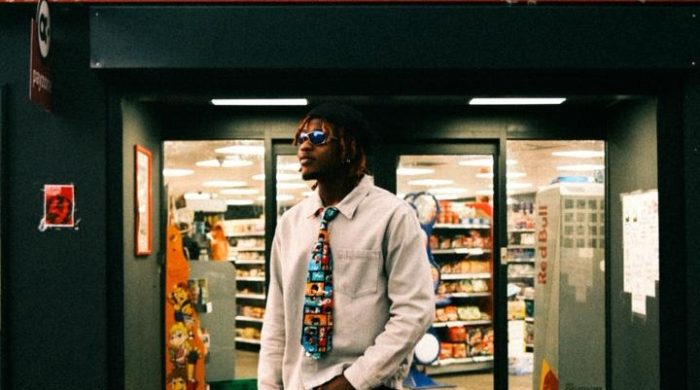Ghanaian dancehall heavyweight Stonebwoy recently ignited a fresh debate across West Africa’s vibrant music community, questioning the real worth of homegrown music catalogues in an industry that’s increasingly looking to the global stage for growth. The conversation—which quickly spilled across platforms frequented by Nigerian and Ghanaian fans alike—has brought a sharp focus not just to artists’ earnings, but also to the future of African music business models.
The topic picked up steam after a clip posted by X user @eddie_wrt showed Stonebwoy, whose cross-continent hits like “Into the Future” and “Activate” have found fans from Lagos to London, speaking candidly during an appearance on Loud Lounge. Stonebwoy remarked: “I don’t believe that any catalogue in Ghana currently is going to earn a mention at around $3–4 million.” This figure, widely cited as the going rate for major Western catalogue deals, raised eyebrows and put a spotlight on the gulf in valuations between African and international artists.
Stonebwoy’s comments struck a chord, launching an ongoing discussion about whether legacy catalogues from Ghana—and, by extension, West Africa—are truly positioned for mega-deals, even as genres like Highlife, Afrobeats, and Afro-dancehall continue to shape global music tastes. With Nigerian acts like Burna Boy, Wizkid, and Tems regularly charting worldwide, the question of commercial recognition for African music rights hits close to home for both artists and industry professionals across the region.
Locally, Ghana’s entertainment industry has increasingly debated the financial prospects of music archives. Just last week, Kuami Eugene, known for his smash tracks “Angela” and “Wish Me Well,” asserted during an interview that his personal catalogue remains in demand, lucrative, and not for sale. Emphasizing his stance, he stated, “My music is still selling. There’s no need for me to sell my catalogue.” Kuami Eugene’s position echoes those of several Nigerian and African superstars who see long-term potential in their creative property, contrasting the trend among certain Western musicians who have sold catalogues for multi-million dollar lump sums—often as a hedge against waning popularity or to secure financial stability.
Recent developments suggest some Ghanaian—and reportedly a few Nigerian—Afrobeats and dancehall stars are now signing deals with specialist companies like Waka Music Limited. These firms manage, license, and distribute catalogues to maximize global reach, placing a bet on monetizing backlists internationally. The entry of such companies highlights a growing recognition among African stakeholders that the continent’s music treasures may be underleveraged, and that proper catalogue management could unlock significant value.
What Is a Music Catalogue?
But what exactly is a “music catalogue”? For Nigerian, Ghanaian, and other West African musicians, a music catalogue is much more than a playlist—it’s the full collection of an artist’s creative output, often spanning many years and reflecting diverse eras, collaborations, and influences. A typical catalogue can include the following elements:

• Released singles, extended plays (EPs), and albums that have shaped the artist’s public profile and connected with fans at home and abroad.
READ MORE: It’s only gotten worse – Stonebwoy on rising toxicity in Ghana’s Entertainment Industry
• Unreleased tracks, studio outtakes, and demo versions—sometimes considered hidden gems by fans and collectors, and often leveraged years after original recording.
• Publishing rights, covering the lyrics, musical compositions, melodies, and arrangements that underpin the songs.
• Master rights, which refer to the original sound recordings themselves—critical in unlocking the full commercial potential of streaming, synchronization, and licensing.
What Does It Mean to Lease a Catalogue?
In the evolving business of African music, leasing a catalogue has become an increasingly common practice. This means the owner—whether an artist, songwriter, or label—temporarily licenses out their catalogue to a company or platform in exchange for a fee. The third party then gains the rights to exploit the music, often using it in advertising, films, brand partnerships, or new digital platforms, helping both creator and company to benefit financially. Leasing can be attractive to artists who want to maintain long-term control but still tap into additional streams of income.
Stonebwoy’s frank assessment raises deeper questions about the future of intellectual property and value creation in Africa’s creative economy. Are local industry players missing out on real value, or is the international market not yet matured enough to place million-dollar price tags on West African catalogues? Many observers, including Lagos-based copyright lawyer Tolu Olatunde, suggest, “It’s not just about the music itself, but about building the publishing infrastructure, historical data, and digital reach required to convince buyers to pay premium rates for African catalogues.”
Nigeria’s own Afrobeats scene, widely celebrated for breaking streaming records and filling global venues, faces similar challenges. Despite impressive numbers, the continent still trails behind markets like the US or UK in maximizing music rights, partly due to fewer established catalogue investment deals, limited local publishing houses, and gaps in copyright enforcement. According to the International Federation of the Phonographic Industry (IFPI), African recorded music revenues saw substantial year-on-year growth in 2022 and 2023, yet remain only a small fraction of global totals.
Some industry leaders believe that as digital adoption accelerates and local platforms—such as Boomplay, UduX, and Audiomack Africa—expand regional and diaspora audiences, the value of African music catalogues will rise. “We’re beginning to see a growing interest from global investors in African rights management, but it’s still early days,” explains Accra-based industry consultant Nana Ama Boateng. Key to this growth will be protecting artists’ rights, providing transparent royalty-tracking, and fostering an environment where catalogues can be fairly valued, bought, sold, or leased without exploitation.
For now, the differing perspectives of artists like Stonebwoy—who approaches the topic with realism—and Kuami Eugene, who is more bullish about long-term earnings, reflect a healthy debate about what it means to own and control African creativity in a globalized marketplace. Artists across Nigeria and Ghana are increasingly wary of quick cash-outs, instead exploring new ways to monetize their archives—through streaming, sync licensing, merchandising, partner deals, and live performances. Fans and industry professionals alike will be watching closely to see if African catalogues begin to command higher valuations—or whether new opportunities and innovative deals will emerge that are uniquely suited to the realities of the continent.
What do you think: Are African music catalogues currently undervalued, or is the market still catching up to the continent’s creative output? Would you rather musicians retain ownership, or sell to investors if the terms are right? Drop your perspective in the comments below and join the conversation—what happens in our music industry affects artists, fans, and the entire African creative scene. For more updates on the rapidly changing world of African music business, follow our page for exclusive interviews, expert opinions, and the latest industry trends.
Have insights or stories about the music business in Nigeria, Ghana, or beyond? Do you know an artist whose experience deserves the spotlight? We want to hear your voice!
Share your tips, opinions, or full stories—whether you’re a music professional, industry insider, or dedicated fan. If you have a story you want to share or sell, email us at story@nowahalazone.com and you might see your piece featured on our site!
For general support, collaborations, or to reach our editorial desk, contact us at support@nowahalazone.com.
Stay plugged in: Follow us on Facebook, X (Twitter), and Instagram for more exclusive coverage of African entertainment, business, and lifestyle!










